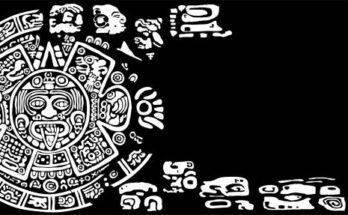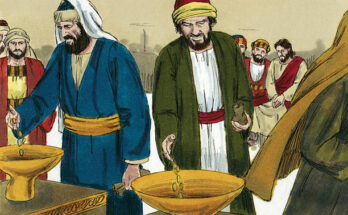The relationship between religion and rationality has been a topic of intense debate throughout human history. On one side, there are those who argue that religion and rationality are inherently incompatible, representing two distinct and often conflicting ways of understanding the world. On the other side, there are those who believe that these two aspects of human thought can coexist harmoniously, each serving a unique purpose in the pursuit of truth and understanding. In this exploration, we will delve into the nuanced interplay between religion and rationality, examining whether they are truly mutually exclusive or if there exists a middle ground where they can complement each other.
Defining Religion and Rationality
 (Photo from iStock)
(Photo from iStock)
Before delving into the question at hand, it is crucial to establish clear definitions of both religion and rationality. Religion, in its broadest sense, refers to a complex set of beliefs, practices, and values that often involve a belief in a higher power or powers governing the universe. It provides a framework for understanding the purpose of life, morality, and the nature of existence.
The Historical Context of the Religion vs. Rationality Debate
Throughout history, the relationship between religion and rationality has been shaped by cultural, social, and intellectual developments. In ancient times, many societies intertwined religious beliefs with explanations for natural phenomena, attributing the workings of the world to the actions of gods or other supernatural entities. However, as human societies progressed and scientific understanding expanded, a tension between religious doctrines and rational inquiry emerged.
The Enlightenment period, spanning the 17th and 18th centuries, marked a significant turning point in the relationship between religion and rationality. Intellectual movements during this era championed reason, science, and individual rights, challenging the authority of religious institutions. Thinkers like René Descartes, John Locke, and Voltaire advocated for a more secular and rational approach to understanding the world, often in contrast to traditional religious dogma.
The Compatibility Thesis: Religion and Rationality in Harmony
Proponents of the compatibility thesis argue that religion and rationality are not inherently at odds and can coexist harmoniously within an individual’s belief system. One way to reconcile these seemingly disparate aspects is by distinguishing between different domains of knowledge. According to this perspective, religion provides answers to existential and metaphysical questions that fall outside the scope of empirical inquiry, while rationality guides our understanding of the natural world through scientific observation and analysis.
Many religious individuals argue that faith and reason are not mutually exclusive but, rather, complement each other in a holistic worldview. For them, religious beliefs offer a framework for moral guidance, purpose, and a sense of community, while rationality provides the tools for understanding the material world and making informed decisions.
The Conflict Thesis: The Inherent Tension between Religion and Rationality
Contrary to the compatibility thesis, the conflict thesis posits that religion and rationality are fundamentally incompatible, representing opposing ways of understanding the world. This perspective often highlights instances where religious doctrines have historically impeded scientific progress or hindered the acceptance of rational inquiry.
One of the most cited examples is the Galileo affair in the 17th century, where the Catholic Church opposed Galileo Galilei’s heliocentric model of the solar system, which contradicted the geocentric view supported by certain biblical interpretations. This conflict is often presented as a symbol of the inherent tension between religious orthodoxy and scientific progress.
Furthermore, critics of the compatibility thesis argue that religious beliefs. Particularly those based on faith rather than empirical evidence, can lead individuals to reject scientific findings that challenge their pre-existing worldview.
Navigating the Middle Ground: Accommodation and Integration
 (Photo from iStock)
(Photo from iStock)
In the pursuit of a more nuanced understanding of the relationship between religion and rationality. Some propose a middle ground that involves accommodation and integration. Accommodation involves accepting that both religious and rational perspectives have distinct domains of influence. Allowing them to coexist without direct conflict. Integration, on the other hand, seeks to merge aspects of both religious and rational thought into a cohesive worldview.
By acknowledging the autonomy of each domain, NOMA seeks to reconcile the potential conflicts between science and faith.
Challenges to Integration: Fundamentalism and Dogmatism
While many individuals successfully navigate a middle ground between religion and rationality. Challenges persist, particularly in the form of religious fundamentalism and dogmatism. Fundamentalism often involves a strict adherence to religious doctrines and a rejection of alternative perspectives. Including scientific findings that challenge traditional beliefs.
In such cases, the pursuit of integration becomes challenging. As individuals may resist any attempt to reinterpret. Or modify religious teachings in light of new evidence or changing societal norms.
The Role of Personal Experience and Subjectivity
An individual’s personal experiences, emotions, and subjective perceptions play a significant role. In shaping their beliefs about the compatibility of religion and rationality. For many, religious experiences provide a profound sense of purpose, meaning, and connection that transcends rational understanding. These experiences may include moments of awe, transcendence, or a deep sense of spiritual fulfilment.
From a rational perspective, personal experiences are often viewed through the lens of psychology and neuroscience. Explaining phenomena such as altered states of consciousness or the influence of cultural and social factors on belief formation. However, the challenge lies in reconciling the subjective nature of religious experiences with the objective, evidence-based approach of rational inquiry.
Education and Dialogue as Catalysts for Integration
Facilitating meaningful dialogue and promoting education are essential components of fostering integration between religion and rationality. Educational initiatives can play a crucial role in dispelling misconceptions, fostering critical thinking skills. And encouraging a nuanced understanding of both religious and scientific perspectives.
Conclusion: Towards a Nuanced Integration
The question of whether religion and rationality are mutually exclusive is a complex and multifaceted inquiry that transcends simple dichotomies. The historical context, cultural influences, and individual experiences all contribute to the intricate relationship between these two modes of thought which are mutually exclusive.
While challenges persist, ranging from religious fundamentalism to differing views on the role of faith. Many individuals successfully navigate a middle ground that allows for the integration of religious and rational perspectives.




